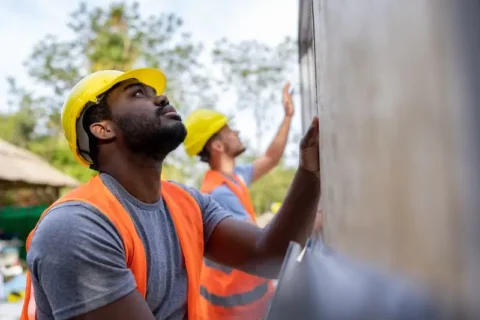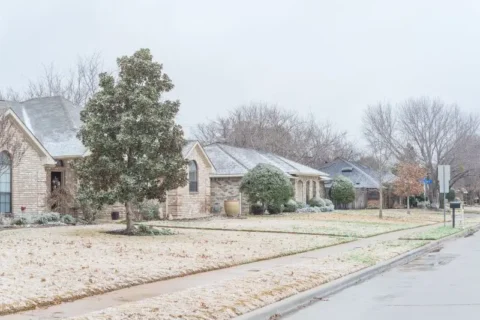How to Control Soil Erosion Around Your Foundation
You expect your home foundation to be indestructible, but soil erosion can have a surprisingly big impact on the structure above it. What causes erosion, and how can you prevent it? Learn the answers to protect your home and avoid costly foundation repairs.
What Causes Soil Erosion?
Soil erodes when water, wind, or human activity displaces soil from one area to another. When this occurs around your foundation, the displacement exposes the underlying soil, leading to structural instability. The biggest factors contributing to soil erosion include:
- Heavy rain, especially when paired with improper drainage
- Strong winds that blow away loose soil
- Land development activities, such as removing trees and vegetation
How Soil Erosion Affects Your Home
Soil erosion can damage your home’s foundation in several ways. As the soil moves, it can cause the foundation to settle unevenly, leading to cracks in the walls and floors. Over time, erosion weakens the foundation, making it more vulnerable to serious damage, such as a sagging roof or lopsided floors. In addition, erosion creates paths for water to flow directly toward your foundation, increasing the risk of basement flooding and water damage.
Tips to Prevent Soil Erosion Around Your Foundation
Here are some effective strategies for preventing soil erosion:
- Adequate drainage: Clean your gutters and downspouts at least twice a year to remove debris. Use downspout extenders to direct water away from the foundation. Also, consider installing a surface or French drain to redirect water off your property.
- Proper grading: Ensure the soil slopes away from your home. Proper grading helps prevent water from accumulating around the foundation, reducing the risk of erosion and water damage.
- Landscaping solutions: Plant grass, shrubs, and trees to help stabilize the soil, but avoid planting large trees within 15 feet of the foundation to prevent root damage. Use mulch around plants to retain soil moisture and reduce erosion by wind and water.
- Retaining walls: If your home is on a slope, retaining walls made from wood, concrete, or stone help prevent soil from shifting downhill. Retaining walls should be professionally installed to ensure safety and effectiveness.
- Regular foundation inspections: Periodically check for erosion and signs of foundation damage, including cracked walls and floors, uneven floorboards, and doors or windows that stick. Early detection allows for timely repairs, minimizing long-term damage.
- Soil treatments: In some cases, treating the soil with a stabilizer helps reduce erosion. Soil stabilizers bind particles together, making the soil more resistant to erosion by wind and water.
Call Our Foundation Specialists in Dallas, TX
With 25 years of experience serving the Dallas area, James Bond Complete Foundation Repair provides expert site drainage, retaining walls, and foundation repair services you can count on. Our customers choose us for our free evaluations and estimates, competitive pricing, and lifetime transferable warranty that comes with every repair. Protect your home foundation with an honest, transparent, and hands-on approach to foundation repair—contact us at 214-621-8771 to schedule a free estimate at your home in Dallas, Garland, or the Plano area.


